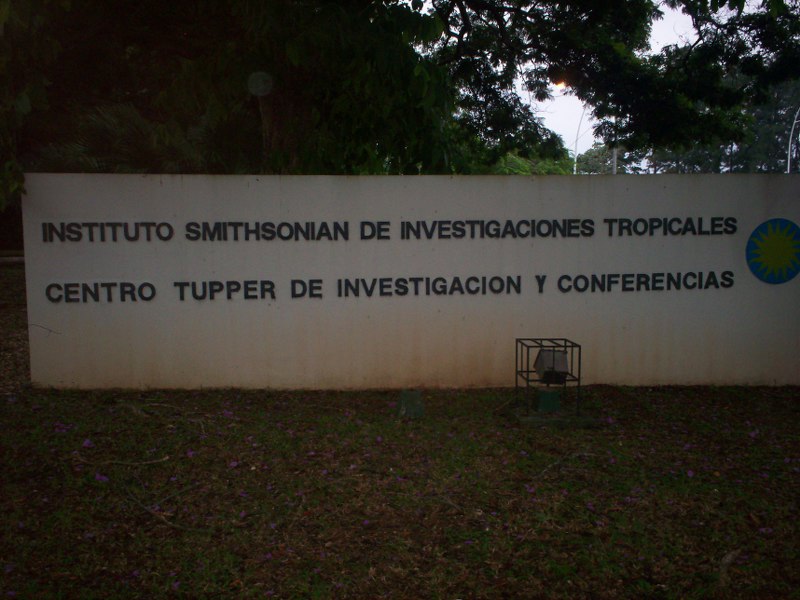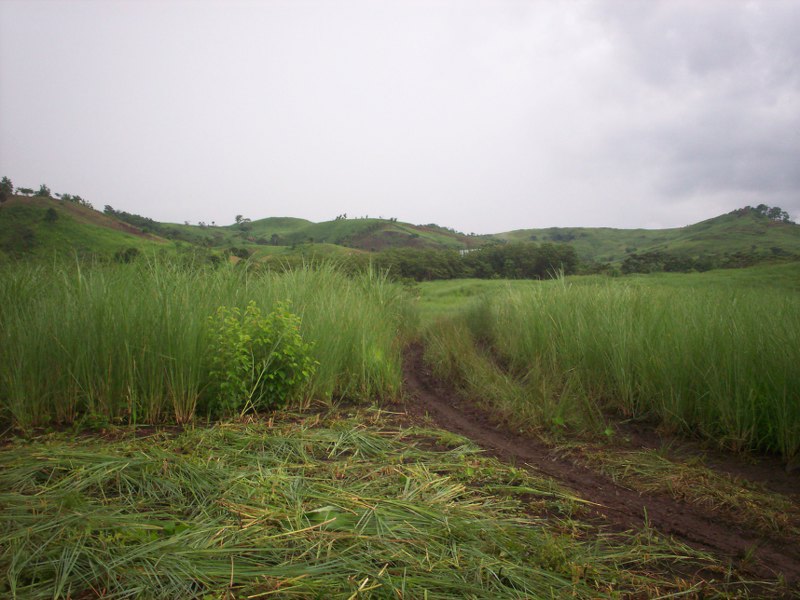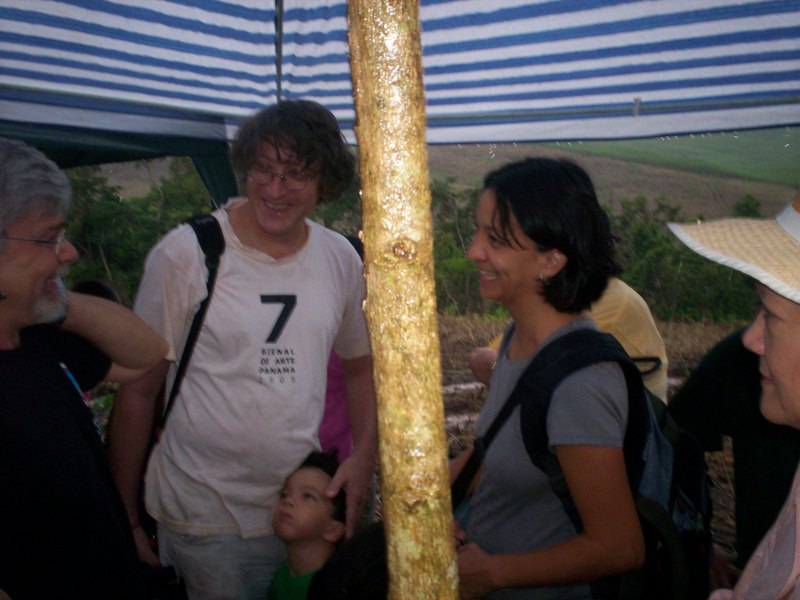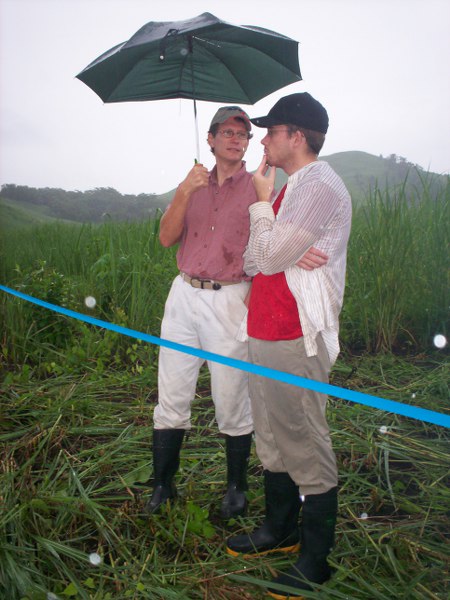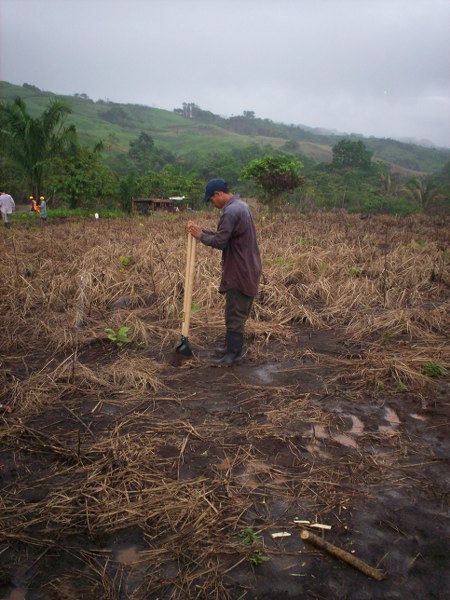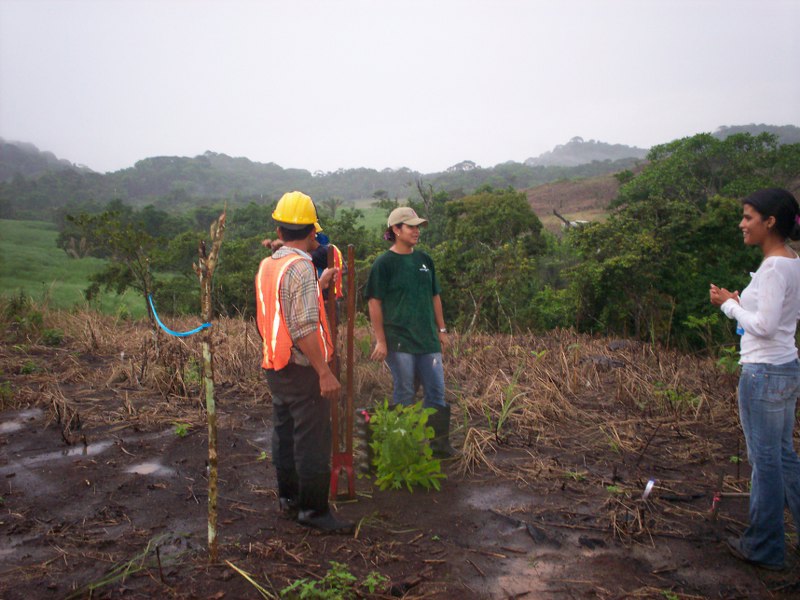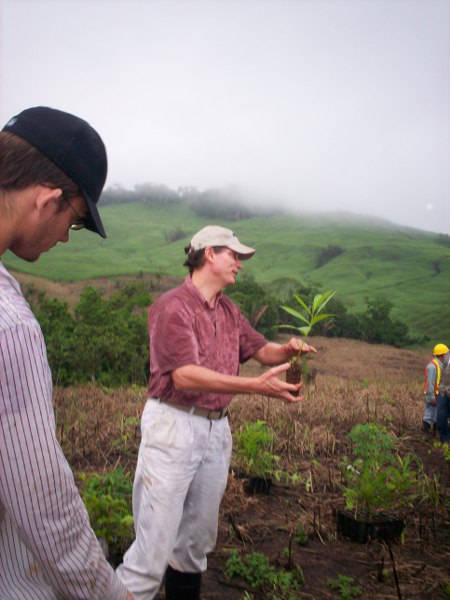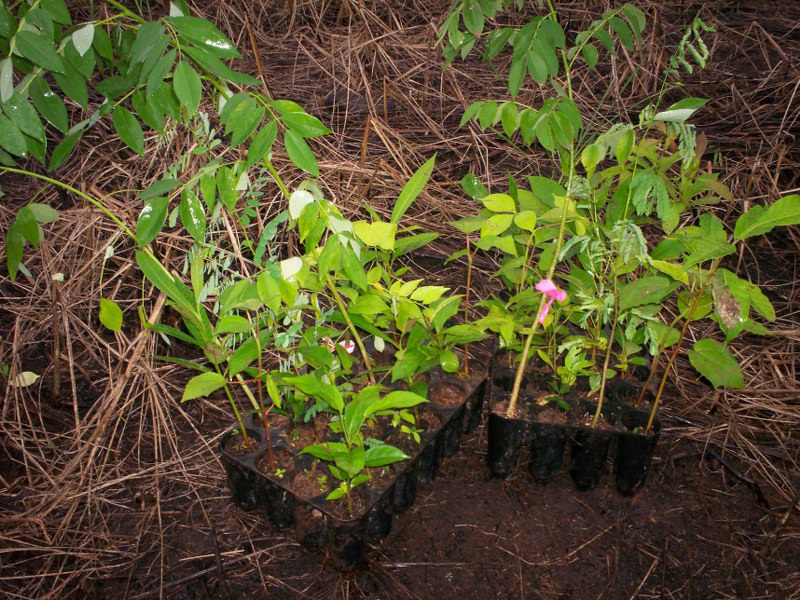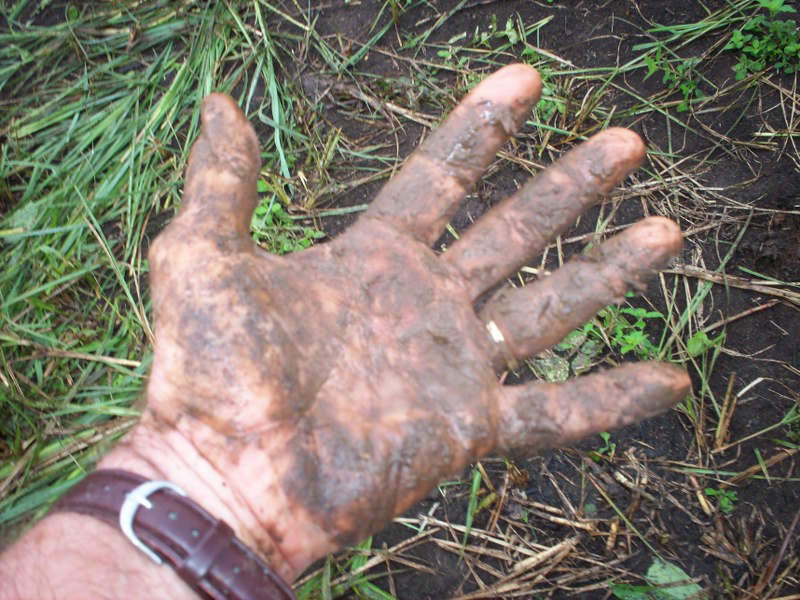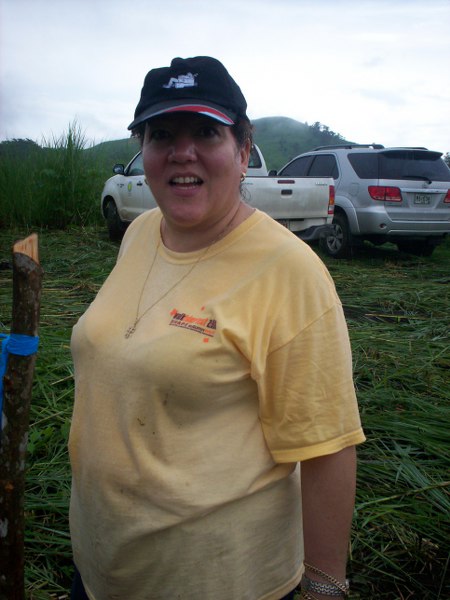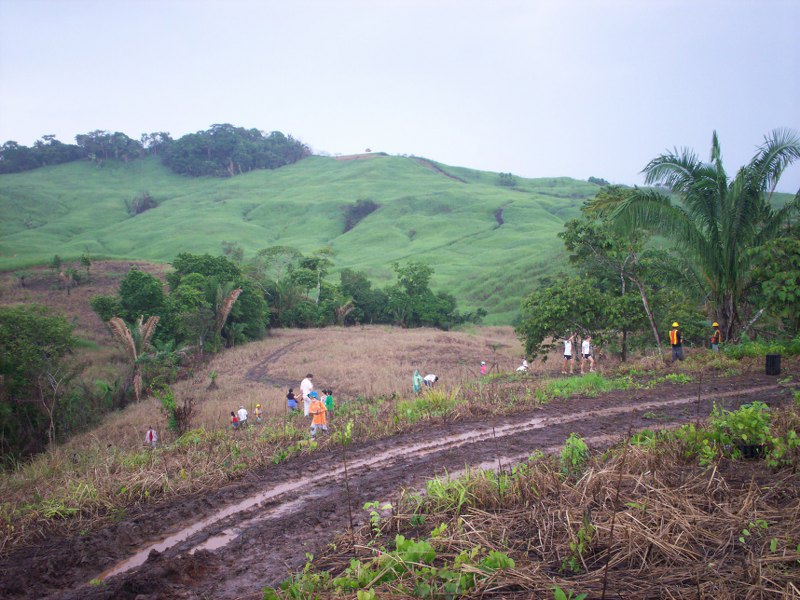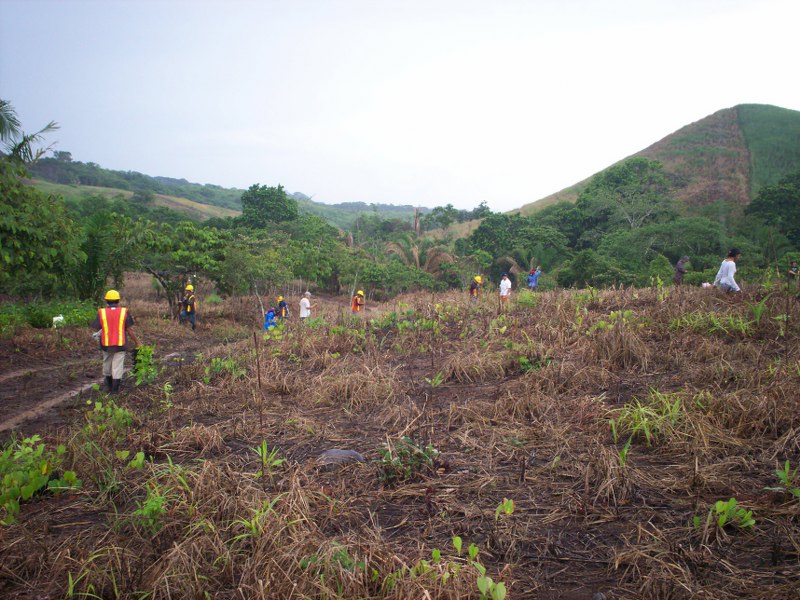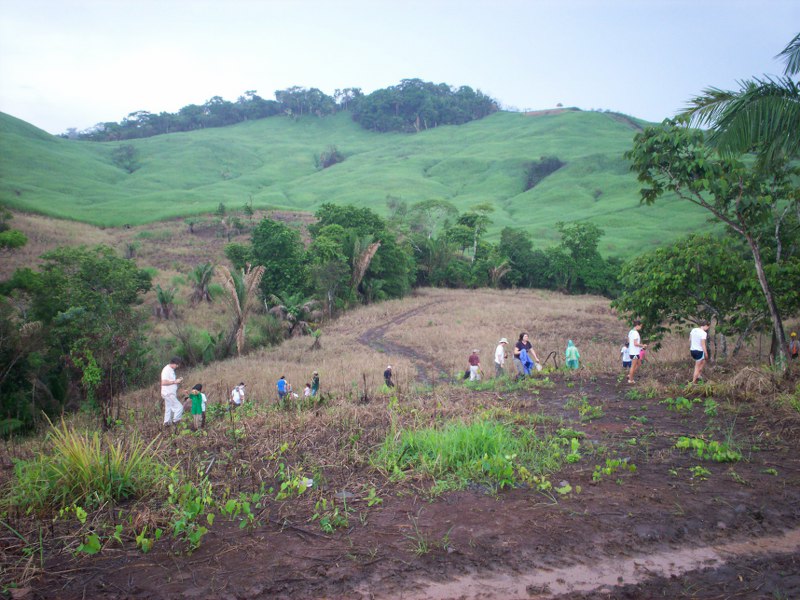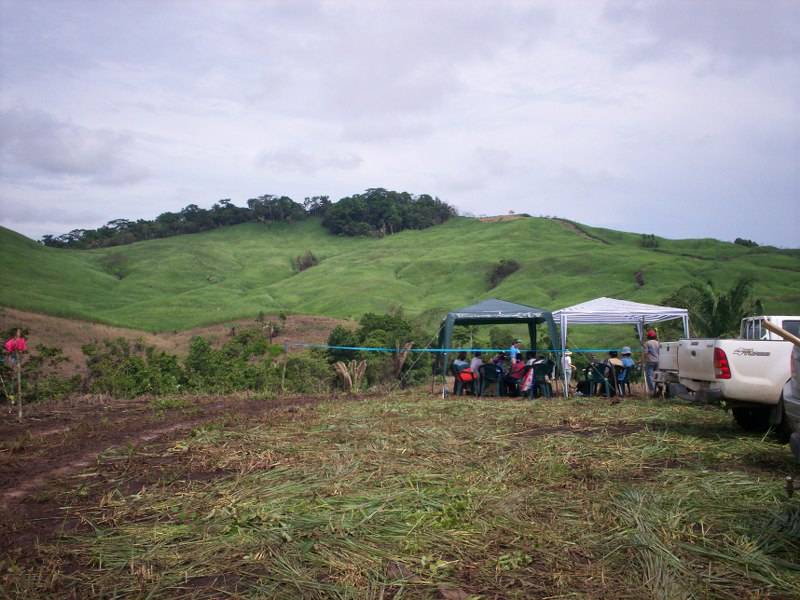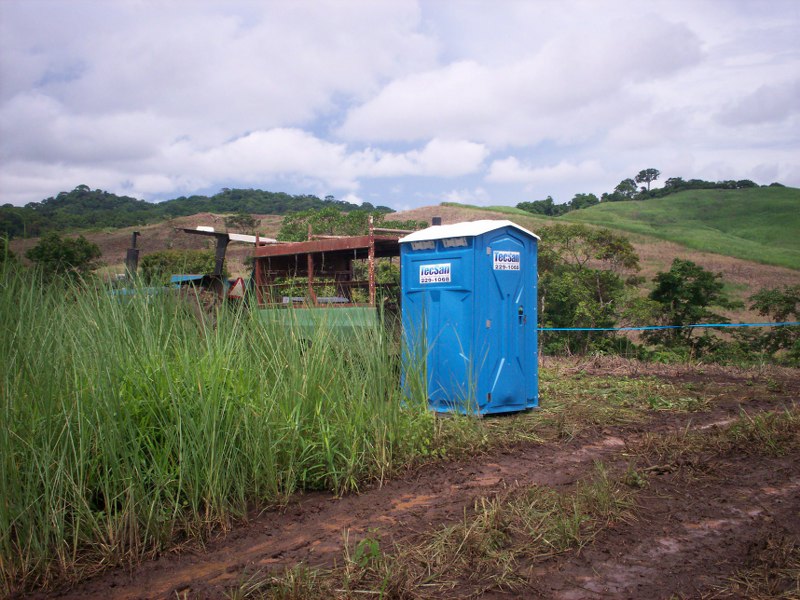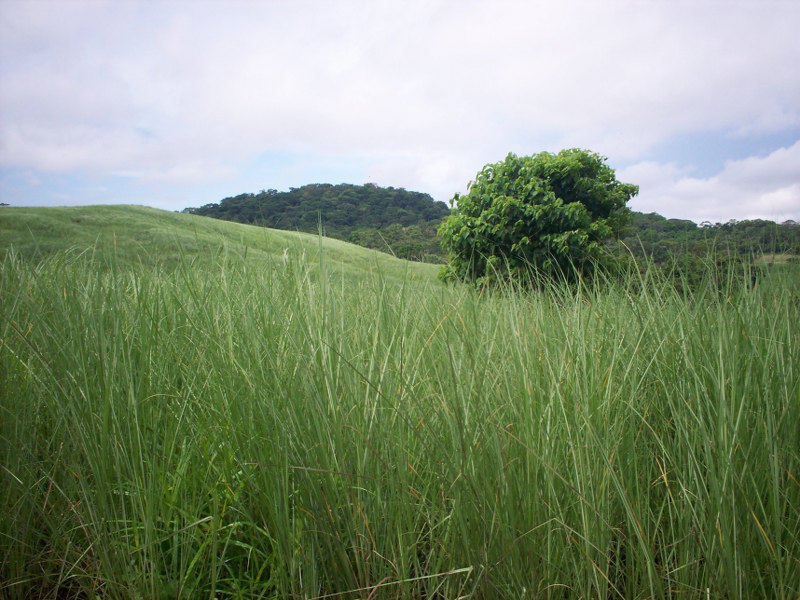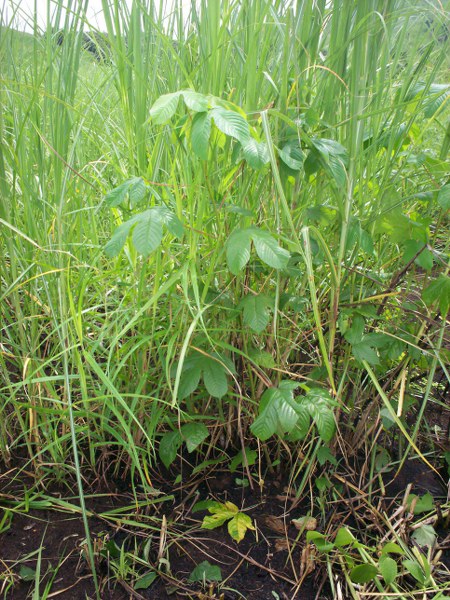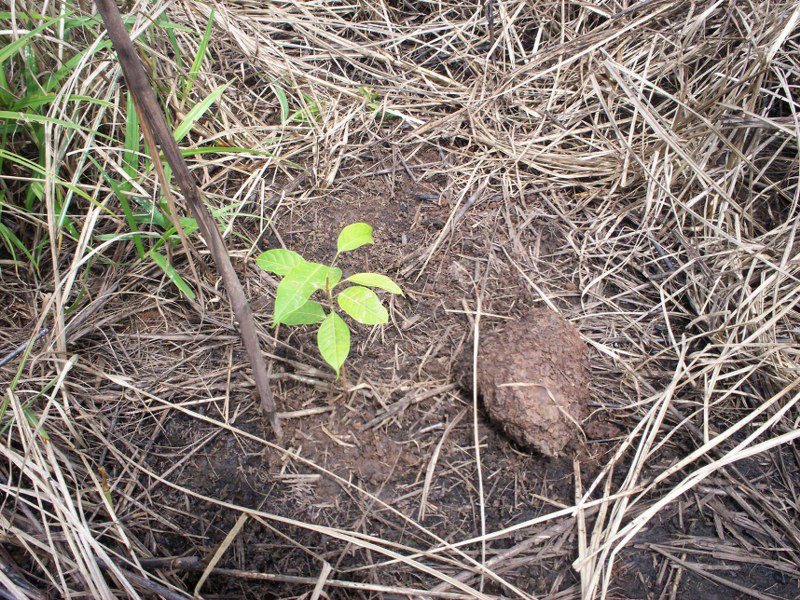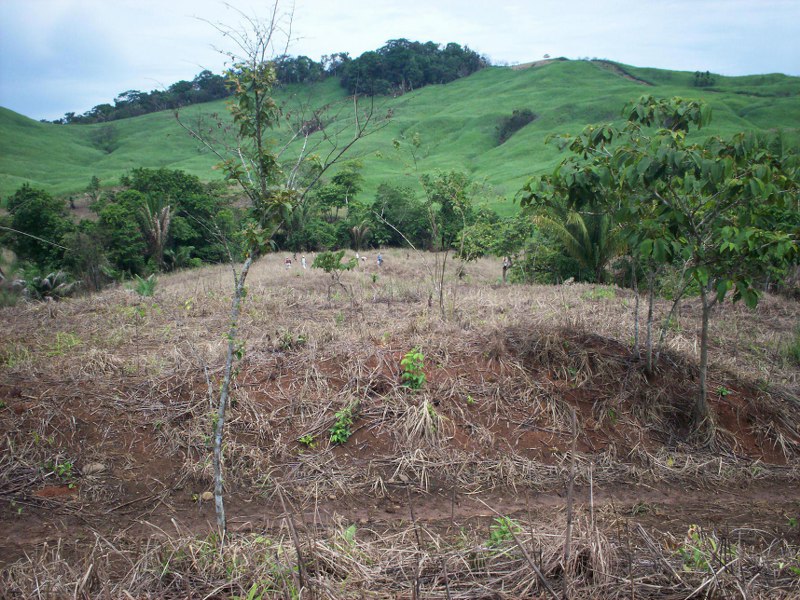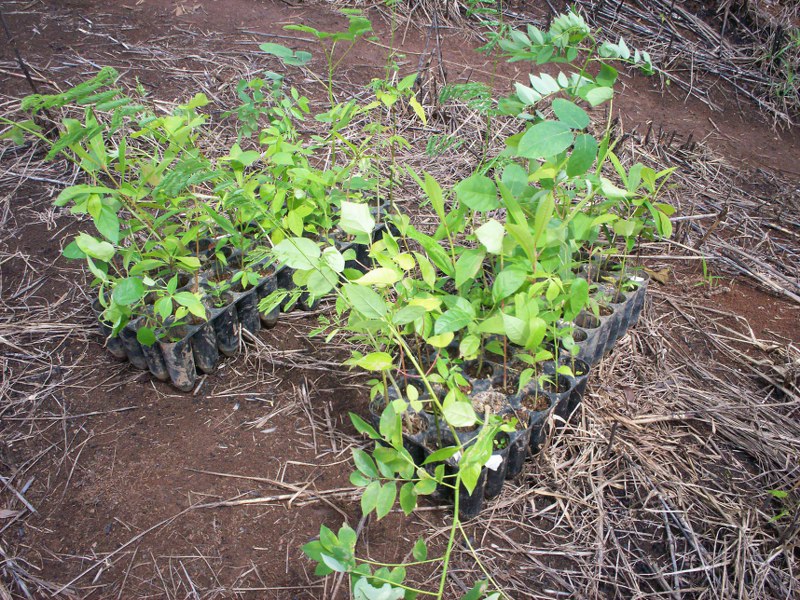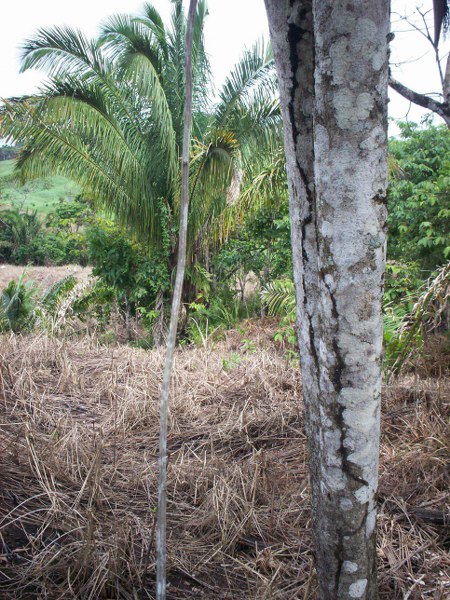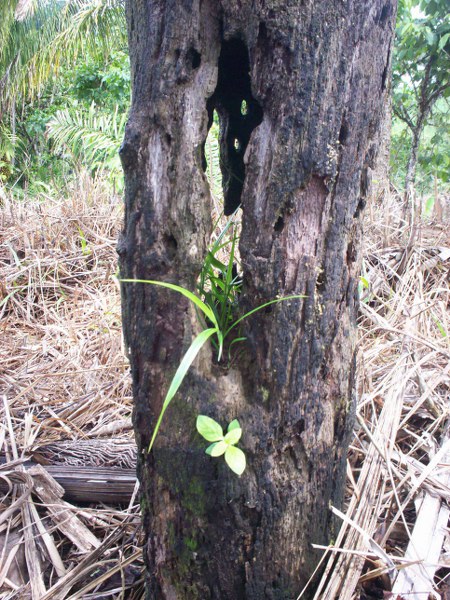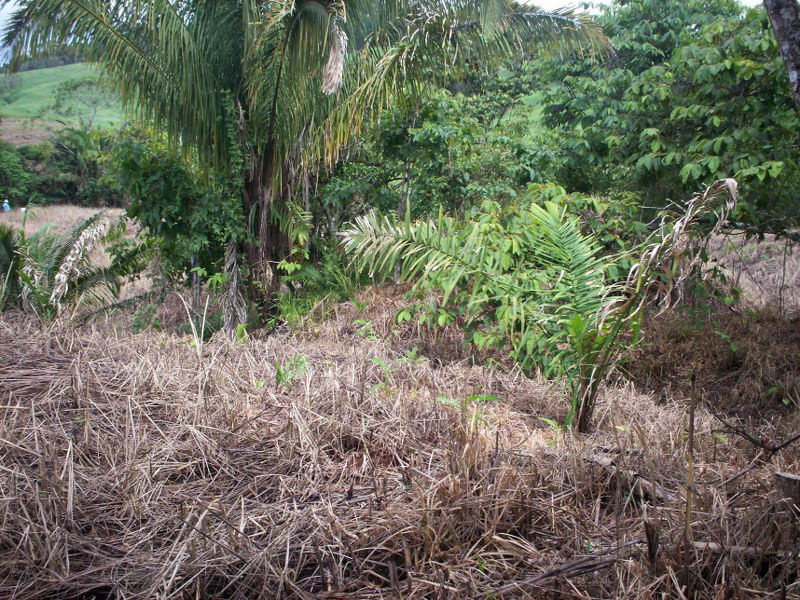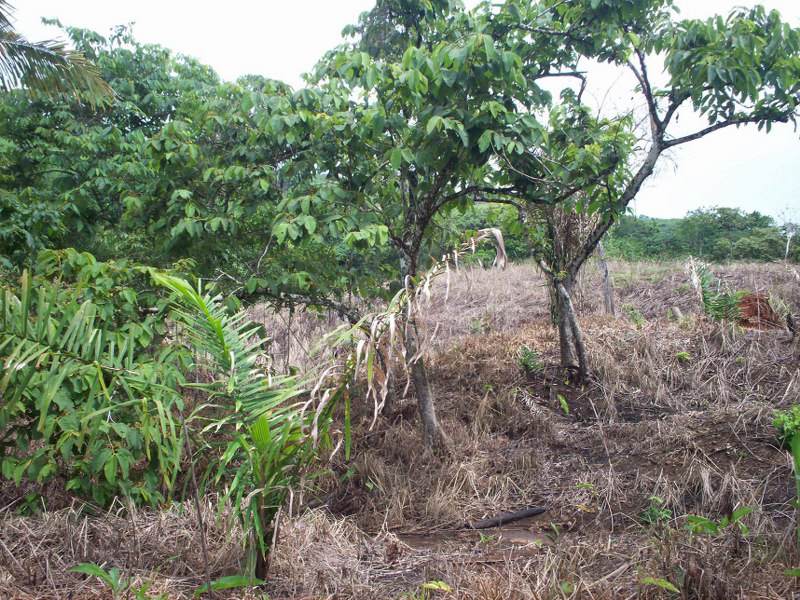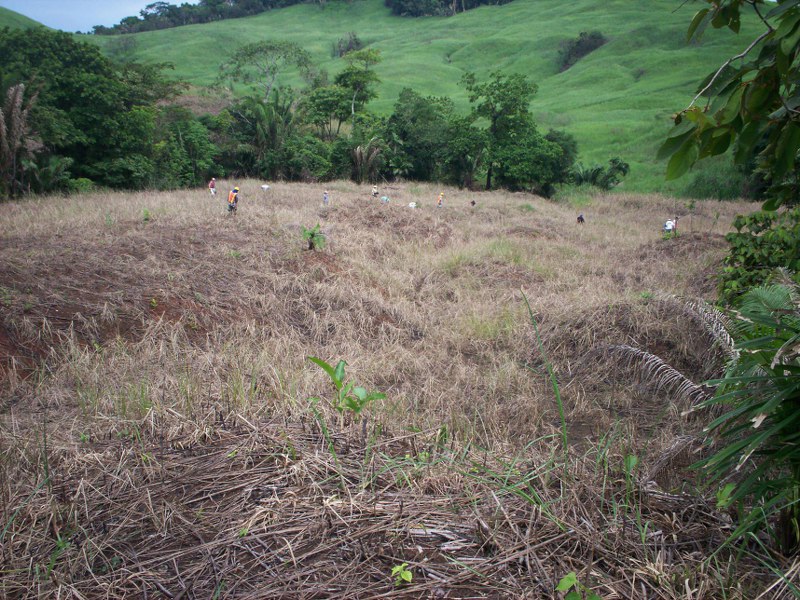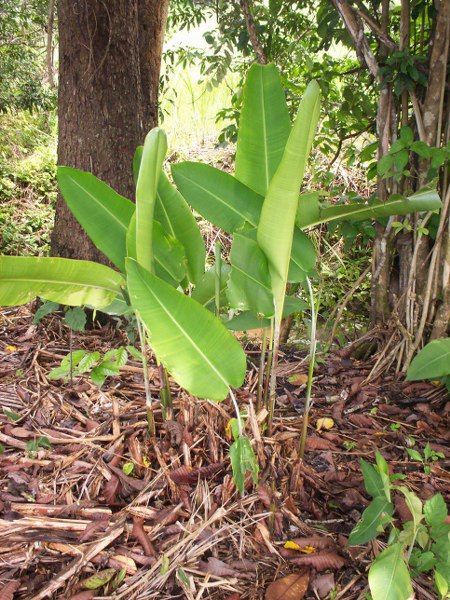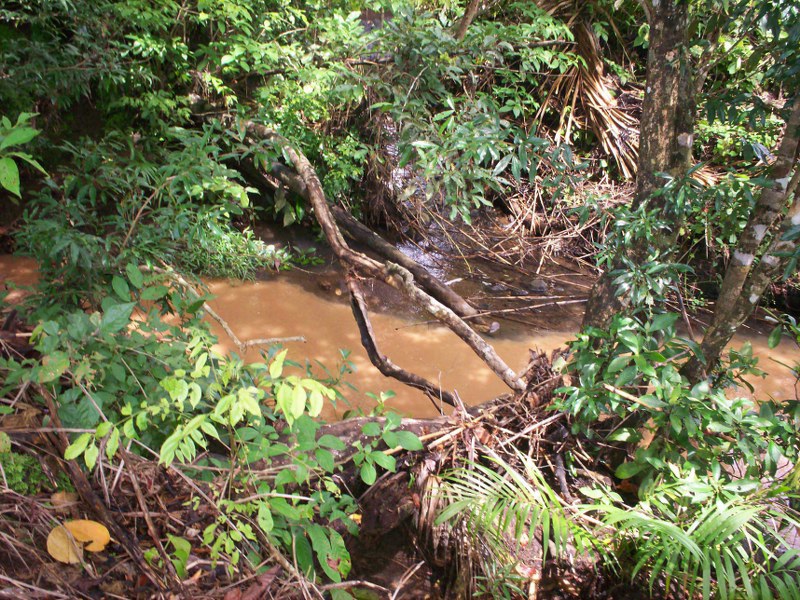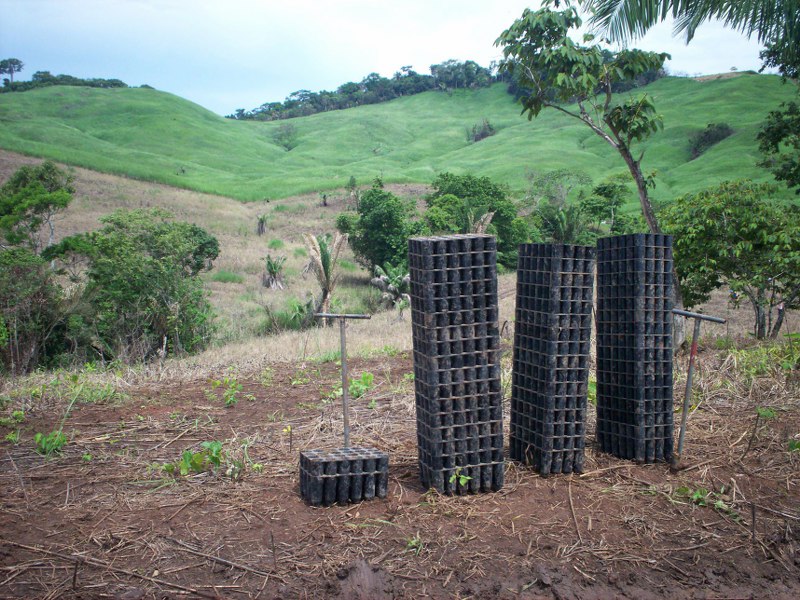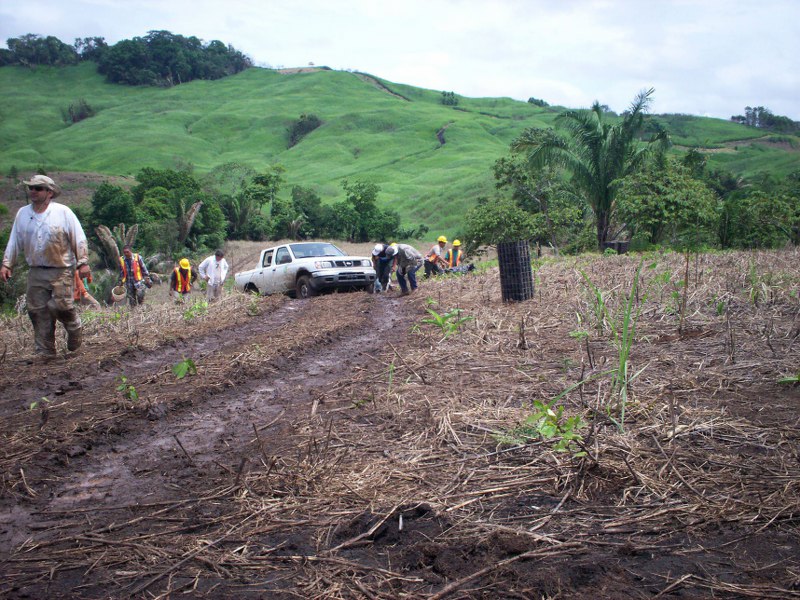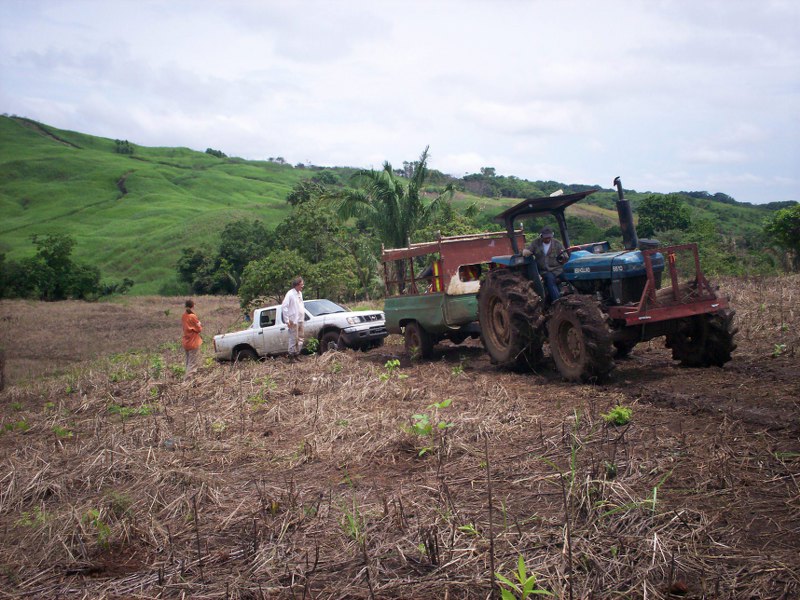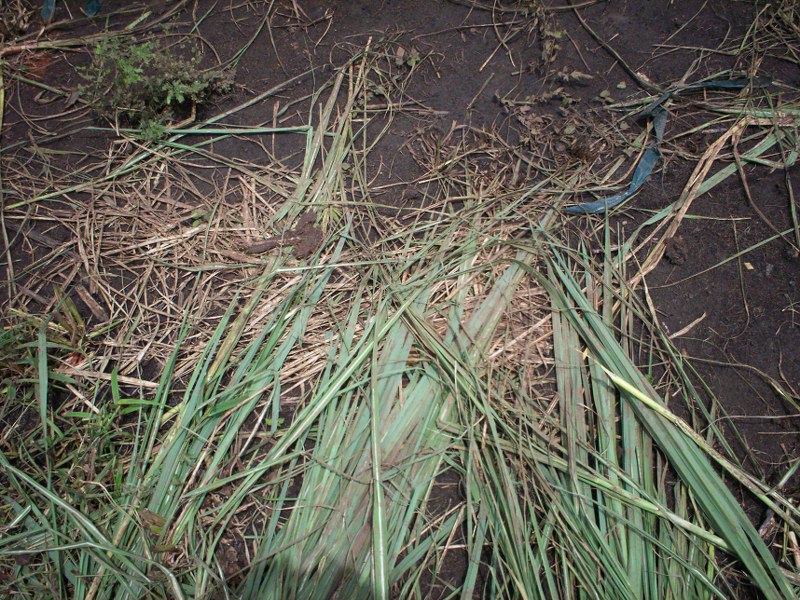The Smithsonian Plants Trees in Soberania to Fight Elephant Grass
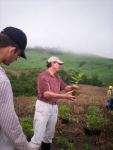
Last Saturday the Smithsonian Tropical Research Institute (STRI) organized a tree planting in Soberania National Park to combat the destructive effects of Elephant Grass. If you like pitching in and getting your hands dirty you would have loved it! This reporter was up before dawn to have breakfast and shower (why did I bother) before getting to STRI’s Tupper Center in Ancon before 7 am. There, some 30 people piled into a variety of, mostly, four wheel drive vehicles and headed to Soberania National Park.
Elephant Grass, also known as Canal Grass, is an invasive species that has crowded out a lot of native plants and trees since it first showed up in Panama in 1928. With funding and assistance from the Panama Canal Authority (ACP) and Panama’s environmental authority (ANAM) STRI has been studying the Elephant Grass problem for years and has been carrying out well documented reforestation projects for six years.
Our part (i.e. the volunteer’s part) was to find a cane stake, dig a small hole next to it, plant a seeding, and move to the next stake. A lot of site preparation went on before this event. The grass had been cut back multiple times starting in March and was reduced to stubble in the four hectares (ten acres) we were planting.
After an “interesting” trip on the muddy, slippery road off the highway we emerged from the corridor of high grass onto the prepped area just as the rain began. “What?” you say. “Rain in Panama?” But, someone had thought ahead and there were tents under which most of the crew gathered.
When the rain quit, Jefferson Hall, the STRI Staff Scientist in charge of the research project, took us through an explanation of how and where to plant and we were all off planting. Families and individuals worked together with a variety of digging tools, planting a mixture of different types of seedlings, all native to Panama.
Sun block came in handy as the clouds parted. There were snacks, juice, and lots of water. Somewhat late, a tractor emerged from the Elephant Grass road bringing a porta potty. All was well and, as sweat mingled with dirt on our clothing, the group of fifty hardy volunteers and staff planted roughly 4,000 seedlings before noon when the topsoil began to dry.
A few interesting tidbits:
- The more commonly used name for Elephant Grass is Canal Grass.
- STRI staff is doing another planting in the Darien in August. This planting has been organized to offset STRI’s carbon emissions as part of STRI’s Carbon Neutral Program.
- Staff members will come back to the same Soberania site in a month or so to replant where any seedlings died.
- There are several sub species of Asian Elephant Grass. STRI Post-Doctoral Fellow, Kristin Saltonstall, is doing genetic testing to see where the "imported" strain came from in Asia.
- The first mention of Elephant Grass in Panama is in 1928 as part of a US Department of Agriculture collection. It is uncertain whether it was also “imported” from a passing ship or if the old US Panama Canal administration brought the grass in as an experiment in controlling erosion.
- The reforestation project is called Prorena and is being carried out in collaboration with Yale University’s School of Forestry and Environmental Studies.
- The majority of the funding for this project is from ACP. ACP also contracts with a local company, Panama Forest, who provide workers who work daily prepping land, planting, and replanting on the Prorena project
- Smithsonian first started working in Panama in 1911, undertaking biological expeditions.
- Today STRI has its headquarters in Panama.
- STRI does tropical research world wide.
- STRI’s research spans a wide variety of subjects from theoretical and evolutionary biology, to animal behavior, marine biology, and conservation biology, to name a few subjects.
- STRI’s work also has to do with the exact things that happen with deforestation and with reforestation. e.g. what animal species survive deforestation, what species come back with reforestation, and how “efficient” new forests are versus old forest as carbon sinks.
- The scientific name for Asian Elephant Grass is Saccharum spontaneum
If STRI’s work in Panama interests you visit their web site at www.stri.org.
For a close up look at STRI’s work consider a trip to Barro Colorado, STRI’s island laboratory in the Panama Canal. Check the Barro Colorado link at STRI’s site.
Click thumbnail to open photo gallery.

